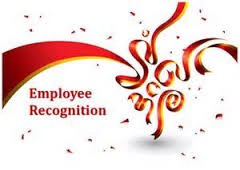
There are sound commercial reasons why owners should put in the effort to reward their top performers. Team members will make a greater contribution to the business if they feel that their contributions are being recognized. You can create a happier and more productive workplace where everyone gets more out of their job than just a paycheck.
Recognition can take place anytime. It can be at an annual performance review or a weekly team meeting. It can be given as praise, or perhaps an additional financial reward, or even a promotion to higher levels of responsibility. Care needs to be taken however to make sure the recognition is done in the most effective way.
It’s important that this recognition comes from management personally and is seen as something special rather than just a function of time like an award for so many years of service. It’s not that years-of-service awards are a bad idea, but the two forms of recognition should be kept separate.
Having too many awards for relatively unimportant reasons can create a culture of expectation where everybody expects his or her award to come up in the near future. The performance being recognized needs to be seen as outstanding by all members of the team and the reward as something that’s been earned.
If a reward event such as giving team members doughnuts and coffee become a regular occurrence it loses its ‘special’ nature and becomes just an expected consequence of showing up for work.
Recognition should be timely and given as soon as possible after the outstanding performance is noticed. The sooner recognition is given the more the recipient and other team members will get the message about how to perform and the benefits it can deliver.
Recognition can be delivered by management in many ways. One of the most effective is personal recognition – an informal talk with the person in which you detail the performance being rewarded and express your appreciation. If you’re straightforward and make the other person aware that you’re sincerely grateful for their contribution you’ll encourage them to higher levels of performance.
Public recognition can also be useful, but is often best used after the personal recognition has been given. This can be as simple as gathering the team together and making a presentation of a small gift with a short speech, or as involved as having an annual team night out where everyone knows that the ‘Outstanding Team Member’ will be recognized.
Sadly, most people feel they work pretty hard and make a meaningful contribution to the enterprise so noses can often be put out of joint by singling one person out as ‘outstanding.
Many people don’t want to be the center of attention when it comes to relationships with their colleagues. Be aware that sometimes recognition is best left on a one-to-one level to avoid embarrassing the person you hope to impress.
A survey conducted by the National Association for Employee Recognition in October 2002 found that 84% of the 391 organizations surveyed had an active employee recognition program. This means they have some kind of system in place to appraise performance and reward those who are performing well.
Interestingly, businesses with recognition and reward programs feel that they achieve better performance from all their people and not just those that have been rewarded. Recognition becomes part of the firm’s culture and even those who haven’t yet received any rewards know that if they do become outstanding performers their work will be recognized.
To construct an effective recognition program requires a bit of care. Most firms already have a performance management process that outlines job duties and performance standards for all positions. The recognition and reward program should be linked to the existing process for consistency.
It would be a mistake to think only about money – both as a factor for recognition and as a basis for rewards. To be fair and work for all team members, many of whom would be in a position where their financial contribution might be difficult to ascertain, standards of performance need to encompass all positions in the firm.
Start developing the program by talking with your team. Explain the reasoning behind the program and why you feel it would be good for the team members and the business. Get their feedback and let them tell you what they think would be the best ways to recognize and reward outstanding performance.
Talk it over with other employers and see what they’re doing, especially those in the accounting or consulting areas. It could save you ‘reinventing the wheel’ for your own business if you can adopt another firm’s program that’s already working.
Copyright 2003, RAN ONE Inc. All rights reserved. Reprinted with permission from www.ranone.com.